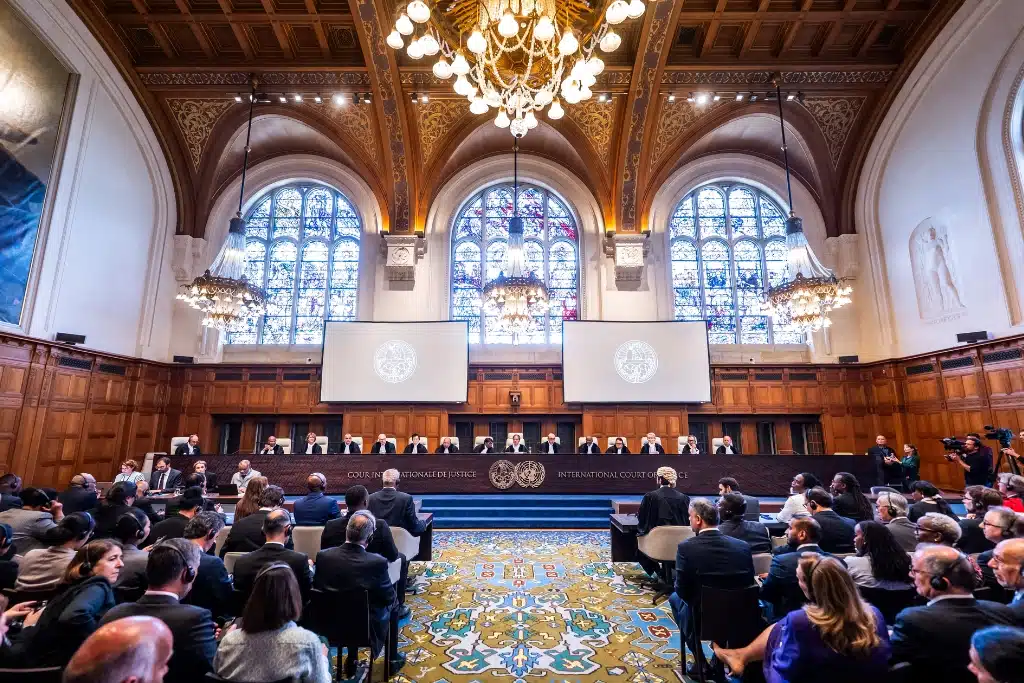In a historic move that could transform the global climate justice landscape, the International Court of Justice (ICJ) has issued a landmark advisory opinion affirming that states have binding legal obligations under international law to prevent and remedy the harmful effects of climate change.
The ruling, delivered on July 23, 2025, is being hailed as a powerful legal tool for African nations and other climate-vulnerable countries in their efforts to hold major polluters accountable.
The advisory opinion, requested through a United Nations General Assembly resolution led by Vanuatu and co-sponsored by 132 countries, including many African states, sets out a sweeping interpretation of international law.
It clarifies that the climate crisis is an existential threat caused by anthropogenic greenhouse gas emissions and that all states have a duty to act with due diligence to protect the climate system for current and future generations.
This opinion represents a critical victory for the global South, where climate change has already exacted a heavy toll.
In Africa, nations are experiencing severe droughts, floods, food insecurity, and displacement, despite contributing the least to global emissions.
The ICJ’s findings give these countries a firmer legal basis to demand accountability and financial redress from high-emitting states and industries.
According to the ruling, existing climate treaties, including the UN Framework Convention on Climate Change, the Kyoto Protocol, and the Paris Agreement, do not exist in isolation.
Instead, they must be interpreted within the broader framework of international law, including human rights, the law of the sea, and environmental treaties.
ICJ emphasized that limiting global temperature rise to 1.5°C is not merely aspirational, but a legally binding benchmark guiding state conduct.
Crucially, the court stated that failure to adequately regulate greenhouse gas emissions, including through fossil fuel extraction, licensing, and subsidies, constitutes an internationally wrongful act.
It confirmed that states must take appropriate steps to cease harmful practices, ensure non-repetition, and provide reparation where applicable, provided a direct causal link to climate harm can be established.
The advisory opinion also affirmed that every person has a human right to a clean, healthy, and sustainable environment.
ICJ recognized this right as foundational to other human rights, including life, food, health, and housing, which cannot be realized without environmental protection.
This declaration provides a robust foundation for African communities and activists advocating for environmental justice through national and regional courts.
Of particular importance to vulnerable nations, including those in Africa, is the ICJ’s finding that the duty to cooperate and the duty to prevent significant environmental harm are central pillars of climate obligations.
These duties apply not only to state actions but also extend to the regulation of private actors, underscoring the role of government oversight in preventing environmental degradation.
The ruling also addressed the obligations of wealthy nations to provide climate finance, technology transfer, and capacity-building to developing countries.
By confirming these as legal duties, not voluntary commitments, the court strengthens the case for increased and enforceable financial support to climate-affected regions.
For small island states and low-lying nations facing existential threats from rising sea levels, the court declared that the loss of territory should not strip them of their sovereign status.
This precedent could have far-reaching implications for statehood, national identity, and international representation in the era of climate displacement.
Though advisory opinions are not legally binding under the ICJ Statute, they carry substantial legal and moral authority.
Historically, such rulings have influenced international norms, driven national legislation, and guided court decisions worldwide.
Climate advocates and legal experts see this opinion as a pivotal milestone that will reshape climate negotiations and litigation strategies for years to come.
African nations now stand on firmer legal ground as they pursue climate justice and demand that major polluters meet their responsibilities.

